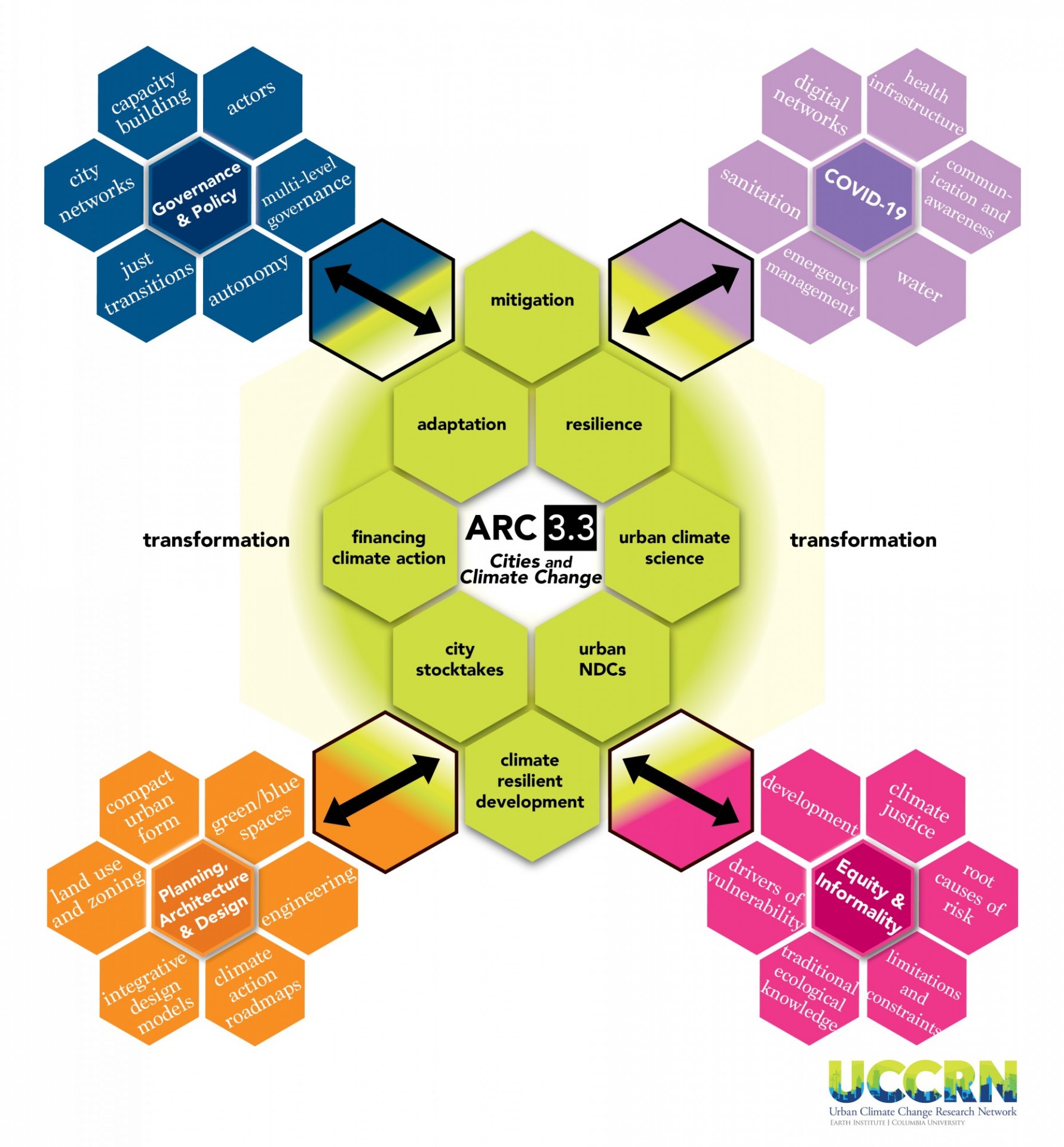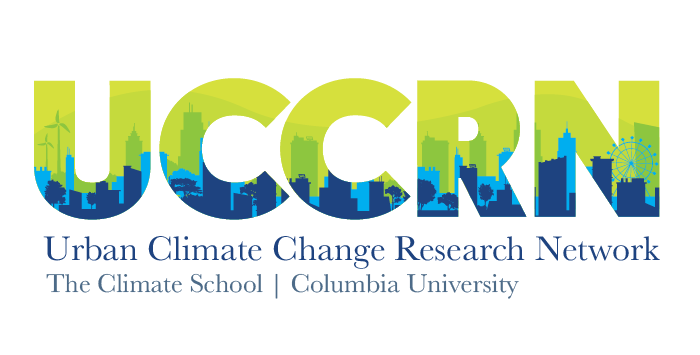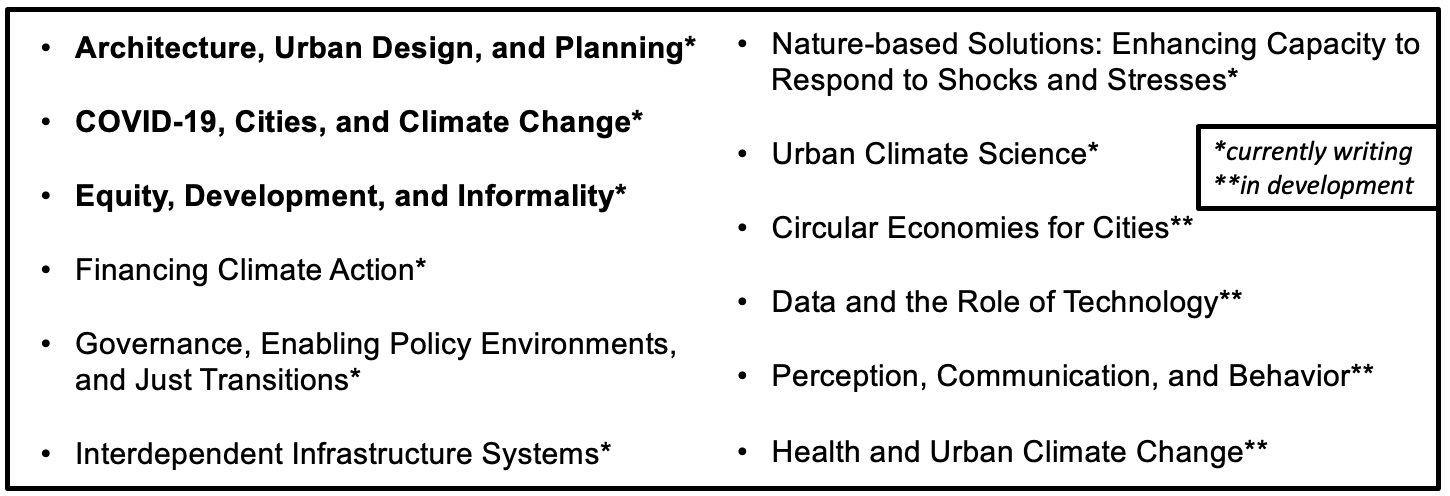Cities have emerged as leaders in both mitigation and adaptation to climate change, and there is a burgeoning interest in their role. A crucial need exists for synthesis of recent research in key areas in order to scale up and speed up the identification, implementation, and assessment of effective climate solutions and successful responses. Building on the First and Second Assessment Reports on Cities and Climate Change published by Cambridge University Press in 2011 and 2018, the UCCRN Third Assessment will be produced as a series of Special Reports on critical topics and key research gaps, by Cambridge University Press in their new Elements series.
By producing a series of short, focused, and timely reports for ARC3.3 (~40-60 pages), UCCRN will be forging the new type of rapid assessment needed as climate change moves beyond issue identification to the implementation phase. This implementation phase is characterized by a rapid expansion of the size of the urban climate change field, which is expanding dramatically, with exponential growth in the number of researchers, city practitioners, and policymakers involved. One of the four major themes at the recent Climate Action Summit held at the UN in September 2019 was ‘Infrastructure, Cities, and Local Action’, a series of events with highly motivated participants. UCCRN organized one of these ‘standing room only’ events. As a result, readership for the ARC3.3 reports will include an increasing number of people from diverse backgrounds.
Some of the series components will address the set of research gaps for urban climate change that emerged from the Cities and Climate Change Science Conference held in Edmonton in 2018. Others in the series will focus on significant topics for continuing attention identified in the ARC3.2 volume. Others are newly identified by urban stakeholders as key areas for rapid knowledge generation. All the component pieces will contribute to the IPCC Special Report on Cities due in the seventh Assessment Report cycle (AR7), estimated for release in the seventh Assessment report cycle (2023-2028). The rapid turnaround promised by the Cambridge Elements format will ensure that the needed information will be available (and citable) by the time of the IPCC Special Report on Cities.
ARC3.3 includes 12 author teams, one for each special report topic.


